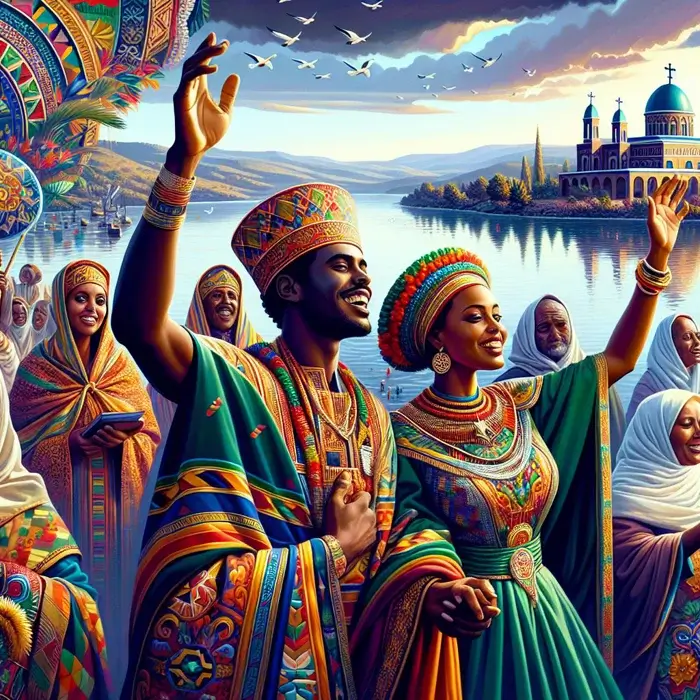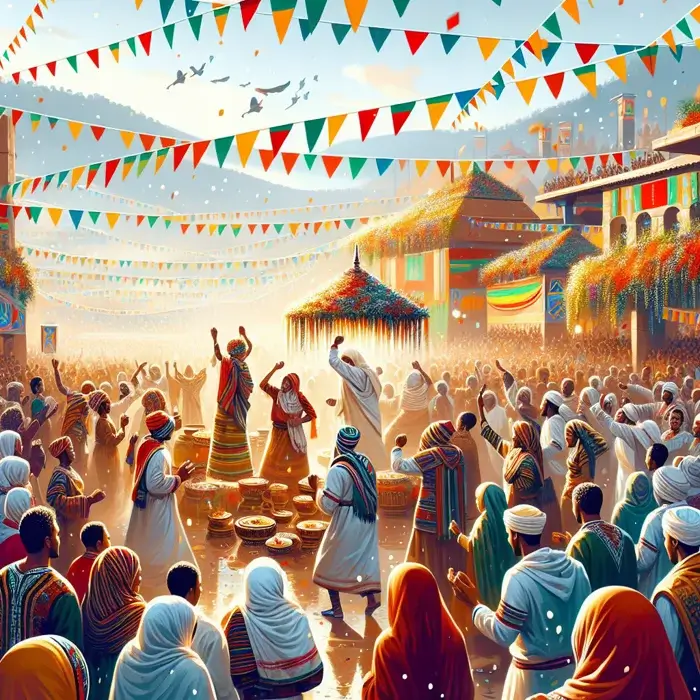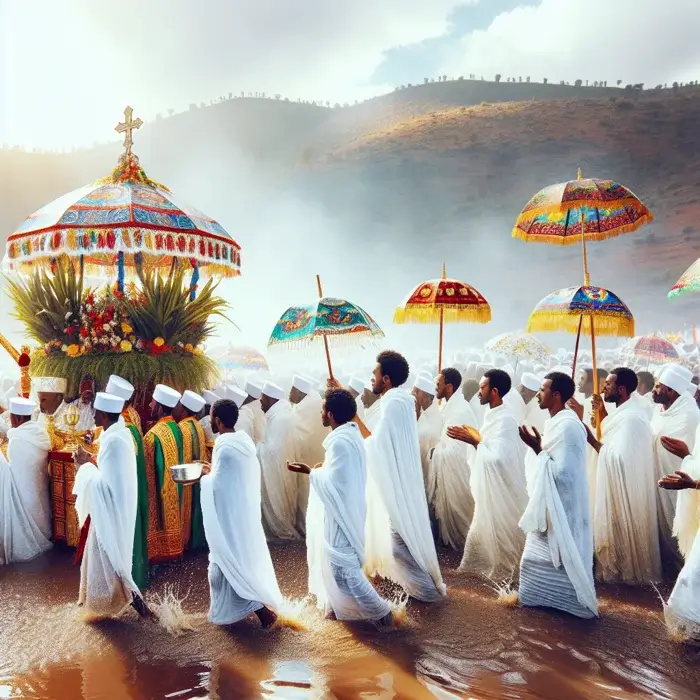Timket in Eritrea
Use our holiday API to get the exact date of Timket in Eritrea in every year.

Timket is wonderfully spiritual and yet a jubilant public holiday in Eritrea known as the Feast of Epiphany. It's an event that commemorates the baptism of Jesus Christ in the Jordan River and is in great reverence by the Eritrean Orthodox Tewahedo Church. The Timket is celebrated yearly and has become such an important part of the heart of Eritrea's Christians, famed for its vibrant rituals and colorful processions.
When is Timket Observed?
Timket is celebrated on the 19th of January in the Gregorian calendar and 20th January in leap years. This is the annual observance according to the Ethiopian Orthodox calendar, all the more since it is not just Eritrea but also Ethiopia that has richly woven cultural and religious traditions since the early centuries.
Historical Importance of Timket
Timket holds its origin from the early Christianity of the region. It celebrates the baptism of Jesus by John the Baptist and is considered an important cornerstone event in Christian theology because in it manifests Jesus' role as Messiah. The event changed after several centuries into the blend of a local culture and religious emotion into one of the most awaited religious occasions in Eritrea.
Celebrations of Timket in Eritrea

All Processions and Church Services
The celebrations start on the eve of Timket or Kumera when a colorful procession takes the Tabot, replica of the Ark of the Covenant, from every church to the respective water body, where the baptism will be held the following morning. The people carry the Tabot very reverently with priests, deacons, and choir members dressed in white gowns while the faithful sing hymns and ululate to the congregation.
Blessing the Water
It begins with the divine liturgy just before the dawn of Timket, after which the ceremonial water is blessed. A special blessing of water is usually done on this day to symbolize the baptism of Jesus and the personal renewal of believers. Most of those attending it are supposed to dip themselves in it or anoint oneself with this water as a way of purification and renewal.
Tradition Music and Dance
Timket, popularly associated with music and dance. The traditional Eritrean instruments of accompanying music are krar, a lyre-like instrument, and the kebero, a type of a drum. Rhythmic tunes make music soar and spontaneously inspire people to dance and sing at this event. The show adds even more life to the religious observance.
Communal Feasting
Timket is also a time for coming together as a community and feasting. Families and friends gather and eat together, traditionally with food made from traditional Eritrean cuisine. Such gatherings forge stronger ties in the community and reflect the cultural ideal of sharing and good nicety toward others.
Effect on Regular Life: Close Banks and Schools?

The nation is in a festive celebration of Timket, and during this time, schools, banks, and most businesses close to enable citizens to fully enjoy the festivity. Museums and other cultural sites may also close, or their visiting hours may vary during the festival. Tourists visiting Eritrea at this time should be prepared as public services will have limited timeframe.
Conclusion: The Cultural Legacy of Timket
Timket is more than a religious institution in Eritrea; it is a cultural phenomenon by which one meets the whole rich tradition and spiritual commitment of this country. Be it processions that capture the imagination, timeless rituals, or simply joining the wider community, Timket is one window into the heart and soul of Eritrean culture. For people willing to experience a meaningful holiday: Timket will capture the life-intersection of faith, tradition, and community in Eritrea.